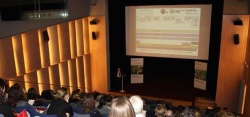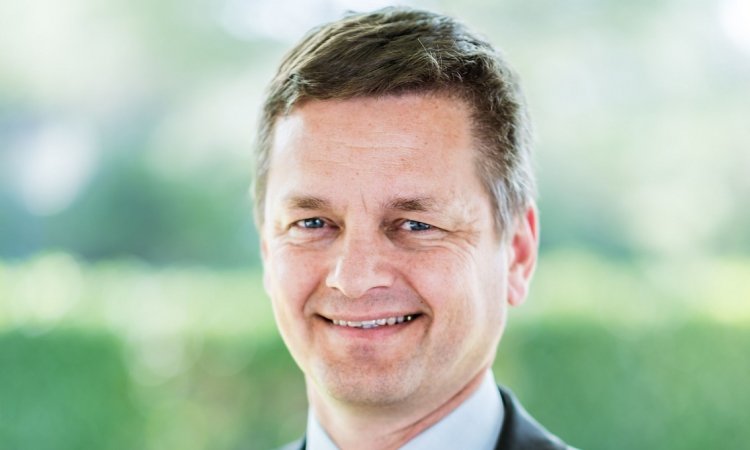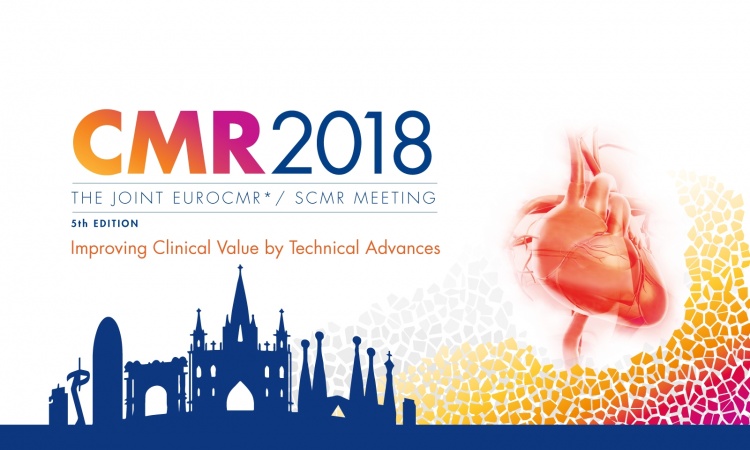Bilateral initiation
The First German/French symposium on cardiovascular research
Renowned French and German cardiovascular researchers gathered in October at the French Embassy in Berlin for a one-day symposium entitled ‘The Frontiers of Cardiovascular Research: From Basic Concepts to Novel Approaches in Therapy and Prevention’


The event was organised by the embassy’s Science Department along with the Max Delbrück Centre for Molecular Medicine (MDC), Berlin, and the French National Alliance for Life Sciences and Health (Aviesan), Paris.
‘In France, cardiovascular research is closely associated with a broad range of topics, for example nutrition and metabolism. We are very much interested in this kind of systemic approach,’ said Professor Walter Rosenthal, Director of the MDC and Member of the Board of Directors of the German Centre for Cardiovascular Research (DZHK). ’In addition, in Germany we could profit from the clinical orientation, meaning the typically translational medical research in France, where nearly every research unit is part of a university hospital.’
On the other hand, the French were attracted by the bundled expertise within German research associations, according to Professor Christian Boitard, director of the institute for Circulation, Metabolism and Nutrition within Aviesan, which coordinates French research agencies in life sciences, like for example INSERM, CNRS, INRA, CEA. Those German associations include the Helmholtz Association, with its 18 scientific-technical and biological-medical research centres throughout the country, and the six nationally funded German Centres for Health Research, such as the German Centre for Cardiovascular Disease (DZHK). The MDC, collaborating partner of the symposium, is both member of the Helmholtz Association and the DZHK, with tight links to the Charité University Hospital and the German Heart Institute in Berlin. The all-in-all well-attended symposium - especially by young scientists - was organised in three sections, focusing on basic and translational research and new concepts for therapy and prevention.
The speakers of the first section, all engaged in studying still unexplored cardiac functions at a molecular level, included Professor Michael Gotthardt, head of the research group Neuromuscular and Cardiovascular Cell Biology at the MDC. Based on rat studies, with colleagues from the USA and the MDC, he discovered that the giant protein titin needs the co-factor RBM20 to properly regulate filling the cardiac ventricles with blood. Patients with a gene-mutation of the protein RBM20 do not produce the proper titin protein that enables cardiac filling and they die at an early age. To utilise these findings clinically, Professor Gotthardt has developed a technique to characterise the functional consequences of individual RBM20 mutations. ‘We can help patients learn if their RBM20 mutation will likely result in the severe form of cardiomyopathy, so that their physician can devise an appropriate therapy,’ the professor explained, adding: ‘We’re currently using this information to develop novel therapy strategies for patients suffering severe forms of this disease.’ In the second session, covering translational research, unexpected findings were presented inter alia by Xavier Jouven, epidemiologist and electro-physiologist at the PARC research centre in the European Georges Pompidou Hospital (HEGP) in Paris.
He spoke of the epidemiology of sudden cardiac death (SCD) in France and the SCD mortality risk factors. Evaluating the heart rate as a prime risk factor, he and his team discovered that people ‘…with the highest risk of SCD are those who do not increase their heart rate sufficiently during exercise, but who increase their heart rate the most during mental stress.’ Prof. Jouven estimates this is due to an insufficient balance between the adrenergic system and parasympathetic nervous system, two subdivisions of autonomic nervous system. This will be studied further in the Cartagene Study, whereas the genetic profile of 2000 people who died of SCD out-of-hospital will be analysed. In the third session, treating with already available therapies, a lecture given by private docent Michael Dandel MD, physician at the German Heart Institute Berlin (DHZB), stood out. He highlighted the possibility of myocardial recovery while receiving assistance from a Ventricular Assist Device (VAD). In patients with chronic cardiomyopathy (idiopathic dilated cardiomyopathy and chronic myocarditis) with mechanical unloading, up to almost 20% recovered and in some of them even the VAD could be removed.
However, indispensable requirements for a potential weaning process are a normal left ventricular size and geometry plus an ejection fraction of at least 45% during repeated short interruptions of mechanical unloading (off-pump trials). According to Dr Dandel, the potential for recovery is still too little studied – up to now before implanting a VAD, it isn‘t predictable whether the patient will recover or not. As the start of an annual symposium, linking cardiovascular disease experts under the umbrella of Aviesan, representing the French research institutes, and the Helmholtz-Centre MDC as well as the consortium of DZHK on the German side, appears to be a promising development – not just for France and Germany, but also for Europe, Prof. Boitard believes. ‘For me,’ he said, ‘this seems the best way to go forward in future scientific cooperation, to first build a strong bilateral interaction and then drop to the next level - to the multilateral European level.’ The next meeting of cardiovascular research specialists will take place in Paris in 2013.
PROFILE
Director of the national Circulation, Metabolism and Nutrition Institute within Aviesan, the French research alliance in life sciences, since 2008, Professor Christian Boitard, studied medicine at Caen Faculty of Medicine. Following his medical and research career in immunology and diabetes, in 1989 he became Professor of clinical immunology at the Paris-Descartes University. In 2002 he became Director of the research Unit 561 of Inserm, the National Institute of Health and Medical Research, focusing on autoimmunity of Type 1 diabetes at Cochin hospital. Since 2006 he has headed the diabetology and clinical immunology department at Hôtel Dieu-Cochin hospital.
Following his medical studies at Justus- Liebig-University Giessen, Germany, and the Royal Free Hospital, School of Medicine in London, UK, Professor Walter Rosenthal became Assistant Professor (Habilitation) for pharmacology and toxicology at the Free University Berlin. He was then Visiting Professor and Heisenberg Fellow at Baylor College of Medicine, Houston, Texas, USA for two years. Between 1996-2009 he directed the Leibniz-Institut für Molekulare Pharmakologie (FMP) and then took the role of Scientific Director of the Max Delbrück Centre for Molecular Medicine (MDC) Berlin-Buch. He is also a professor at the Charité Universitätsmedizin Berlin, one of the largest university hospitals in Germany.
23.01.2013





